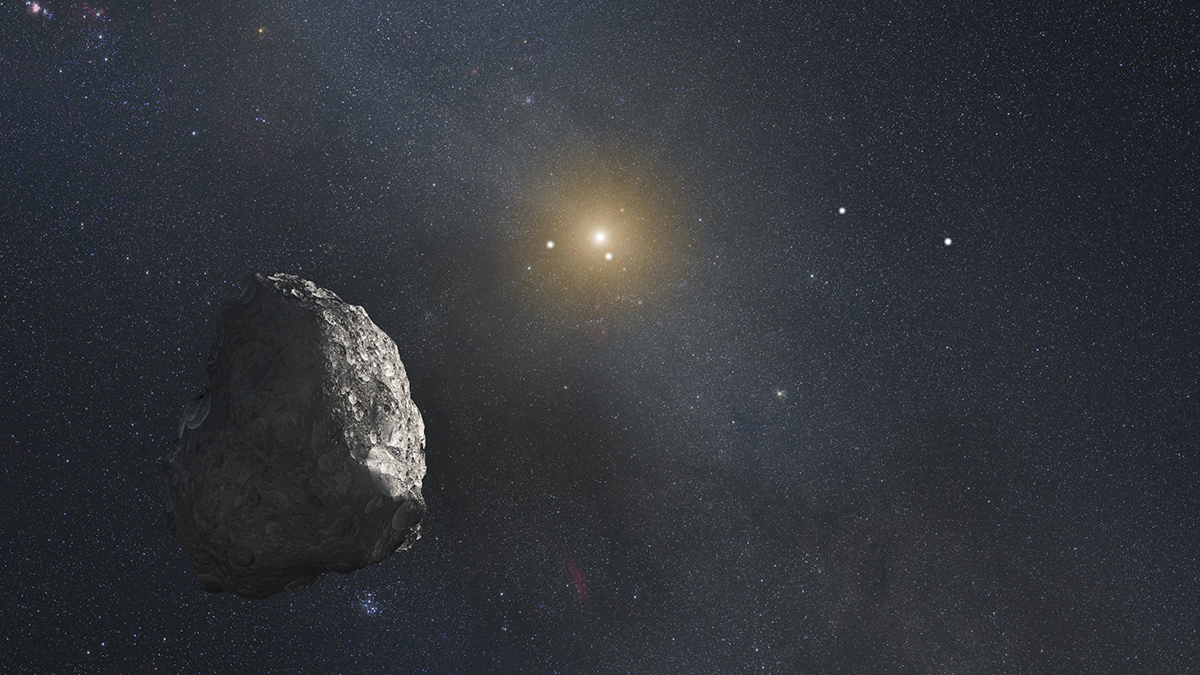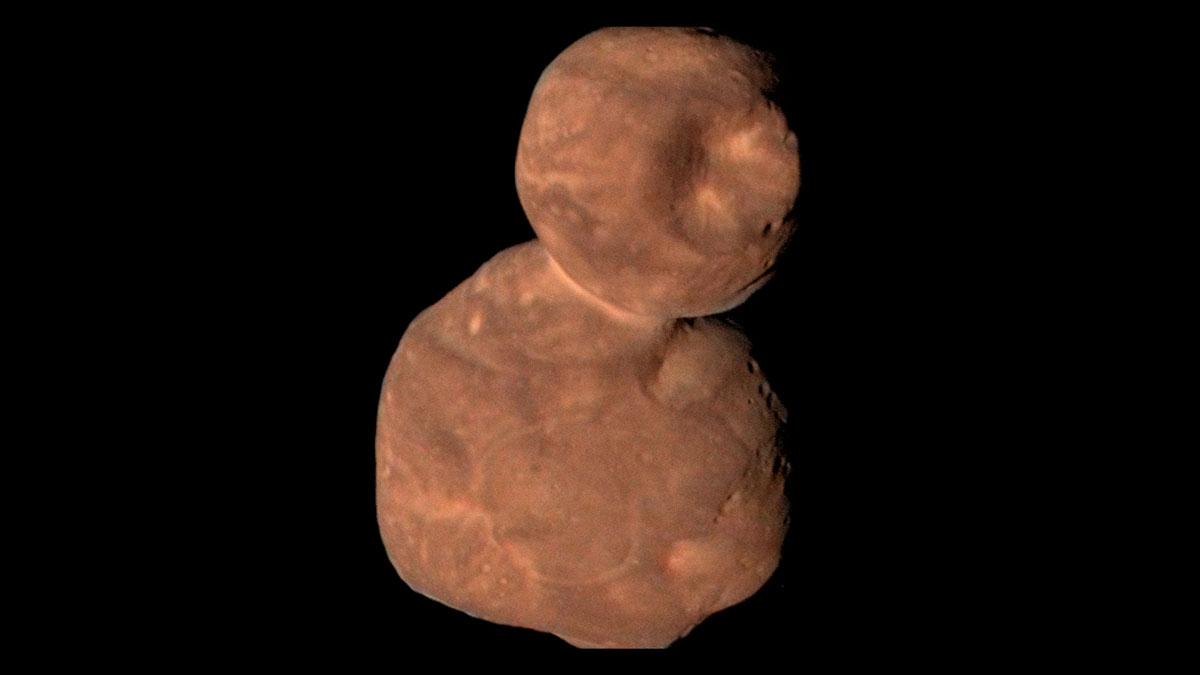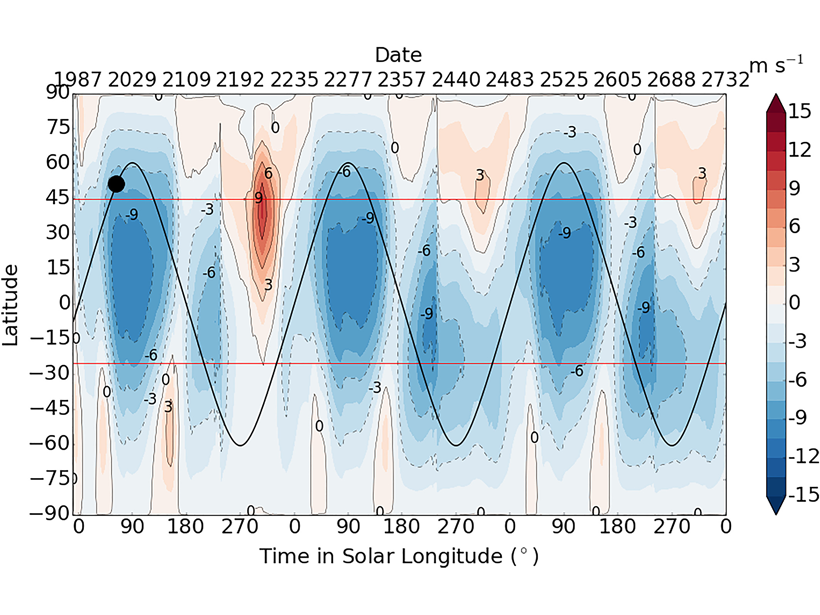The strange blend of surface chemistry on Nix and Hydra raises big question about the evolution of the Pluto system.
New Horizons
Another Ring of Objects Might Exist in the Outer Solar System
A search for a new target for NASA’s New Horizons spacecraft suggests that space beyond the Kuiper Belt could be an unexpectedly crowded place.
A Sugar Coating for Arrokoth
A Kuiper Belt object might contain ribose and glucose on its surface—the same elements that could have seeded life on Earth.
Arrokoth’s Mounds Hint at How Planetesimals Form
The most remote world ever seen up close is a mash-up of smaller pieces.
A Glimpse at Planet Formation at the Dawn of the Solar System
The low density of Kuiper Belt Object Arrokoth sheds light on the formation of planetesimals in the early solar system.
Pluto’s Surface Was Recently Sculpted by Icy Volcanism
Geologically young regions of Pluto’s southern hemisphere were likely resurfaced by cryovolcanism, data from the New Horizons spacecraft reveal.
Capturing Pluto’s Heartbeat in a Computer
Unprecedented global climate model simulations, incorporating observational data from the New Horizons mission, reveal atmospheric circulations driven by a large ice cap on Pluto.
Pluto’s and Charon’s Craters Reveal a Solar System Deficit
The New Horizons spacecraft recorded images of craters that imply an unexpected dearth of small objects in the Kuiper Belt.
New Horizons Sends First Looks of 2014 MU69
Explore 10 things scientists have already learned about the most distant object visited by a spacecraft from Earth.
New Horizons Spacecraft to Reach Farthest Body in Solar System Yet
The flyby of Ultima Thule on New Year’s Day will give us our first glimpse of a mysterious Kuiper Belt object.










